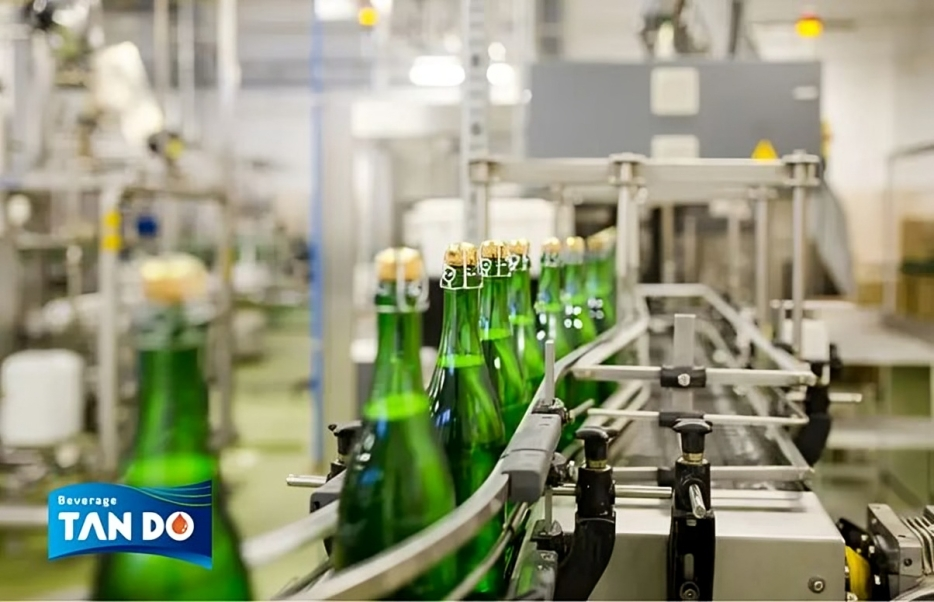Introduction
The beverage industry plays a crucial role in the global economy, offering a wide range of products. From soft drinks and bottled water to coffee and alcoholic beverages, the industry meets the diverse tastes of consumers worldwide. As consumer preferences evolve, companies in the beverage sector continue to innovate, delivering new flavors and healthier options. This article explores the key aspects of the beverage industry, its trends, and its growing influence in today’s market.
A Diverse Range of Products
The beverage industry covers an extensive variety of products that cater to different consumer needs and occasions. These include non-alcoholic beverages like soda, juices, and energy drinks, as well as alcoholic drinks like beer, wine, and spirits. Beverage companies continuously develop new products to keep up with changing consumer preferences. For instance, there has been a noticeable shift toward healthier options, such as sugar-free drinks and organic beverages. As a result, companies invest in research and development to meet these demands while staying competitive.
The Rise of Health-Conscious Consumers
Health-conscious consumers have significantly influenced the beverage industry in recent years, driving demand for healthier alternatives. People are now more focused on what they consume, seeking products that align with their wellness goals. In response, beverage companies have reduced sugar content and introduced drinks enriched with vitamins and minerals. Products like kombucha, plant-based milk, and flavored water have gained popularity among health-conscious consumers. This shift has encouraged brands to rethink their offerings and create beverages that are both refreshing and nutritious.
Sustainability and Environmental Impact
Sustainability has become a critical factor for companies in the beverage industry, as environmental concerns continue to rise. Consumers are increasingly aware of the impact packaging and production methods have on the environment. To address these concerns, companies are adopting sustainable practices, such as using eco-friendly packaging and reducing water consumption during production. Many brands are also committing to recycling initiatives and using biodegradable materials. These efforts not only improve a company’s reputation but also appeal to environmentally-conscious consumers, further driving sales.
Innovation in Beverage Technology
Technological advancements have revolutionized the beverage industry, improving both production processes and product quality. Companies are leveraging technology to create new flavors and enhance the overall drinking experience for consumers. For example, smart packaging solutions allow customers to scan products and learn more about their ingredients. Additionally, beverage manufacturers are using automation and data analytics to optimize production, reducing waste and improving efficiency. The integration of technology has enabled the industry to meet growing demand while maintaining high-quality standards.
The Impact of Globalization on the Beverage Industry
Globalization has had a profound impact on the beverage industry, allowing brands to expand their reach across borders. Today, consumers have access to international beverages, thanks to global trade and improved distribution networks. This has led to the introduction of new flavors and cultural beverages in various markets. Moreover, globalization has increased competition, encouraging companies to innovate and differentiate their products. The ability to source ingredients from different parts of the world has also contributed to the development of unique and diverse products.
Marketing and Brand Loyalty in the Beverage Industry
Marketing plays a vital role in the success of beverage companies, helping brands build strong connections with consumers. Effective marketing strategies create brand loyalty, ensuring that consumers return to their favorite drinks time and again. Companies often invest heavily in advertising, sponsorships, and influencer partnerships to promote their products. Additionally, social media platforms have become key tools for engaging with consumers, allowing brands to share stories and build a loyal following. A strong brand presence helps companies thrive in a highly competitive market, driving growth and customer retention.
Conclusion
The beverage industry continues to evolve, driven by changing consumer preferences, technological innovations, and a growing focus on sustainability. From health-conscious trends to the impact of globalization, the industry faces both challenges and opportunities. Beverage companies must adapt to these shifts while remaining committed to providing high-quality, diverse, and environmentally friendly products. As the industry grows, its influence on consumer behavior and the global economy will only strengthen, ensuring a future full of exciting new developments in beverages.













